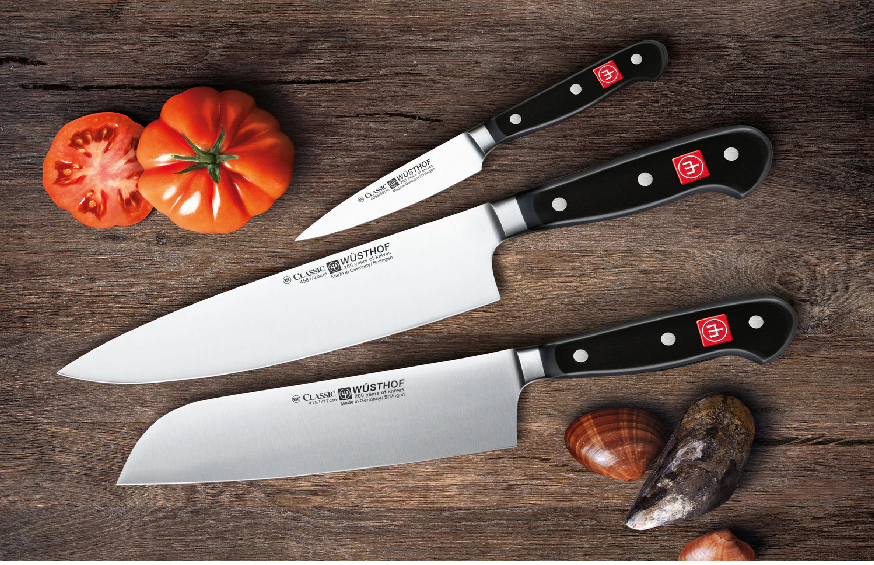A good set of knives will surely make your day in the kitchen, especially when it’s sharp at chopping time. No one likes to use a broken, dull, or rusted blade while cooking. Therefore, if you want your knife to be well-maintained and be on-point when cutting, then you need to put some effort into its maintenance.
No worries! Here is a brief yet thorough guide on how to care for and maintain your kitchen knives.
Dos and Don’ts for Kitchen Knives
You need to be careful about following dos and don’ts when using, cleaning, and storing your blades.
● Regularly Sharp & Hone
Sharpening and honing your knife is the first and foremost job that needs to be added to your maintenance routine. A dull knife is more dangerous as it requires more pressure to cut the object, which in turn may slip and cut your fingers.
For sharpening, you can use an electric sharpener, a sharpening stone, or send it to an expert. Honing is the same as sharpening, but it is about aligning the edge and recalibrating the angle of the knife. In contrast, sharpening is reshaping the edge by grinding away small metals and might be needed once or twice a year. Any home cook can do honing, and you must hone the blade before each use. It really helps in the slice cutting of tomatoes when preparing your salad.
However, you must read the instructions of the manufacturer regarding sharpening or honing its knife set. For example, Kamikoto knives is a cutlery brand that instructs the users to only sharpen their knives using a Japanese whetstone and refrain from sharpening devices.
● Use a Cutting Board
Always cut on a cutting board when working with your sharp-edge knife. As the surface, you choose to cut on really matters, use a wooden cutting board instead of marble, granite, glass, or any other solid surface that is harder than the knife itself.
● Properly Clean Your Knives
Frequently rinse your knives with warm water while cutting and wipe them with a dry cloth immediately. It will prevent them from dulling, bending, breaking or corrosion. Always hand-wash them and never allow them to sit for more than a few minutes in the sink.
Please don’t put your kitchen knives in the dishwasher as they are left to sit for a time which may ruin them or cause discoloration. Only some knives are meant to be washed in the dishwasher, but the heat, moisture, and detergent can dull most of the high-quality like Kamikoto knives.
● Thoroughly Dry Before Storing
After the refrigerator meat compartment, the dirtiest item in the kitchen is the knife block on the list of some studies. Microbiologists believe that the chances of microbes’ growth increase when you put a wet or unwashed knife into a knife block. A dark and moist environment is a host to germs. However, washing and thoroughly drying your knives before storing can prevent the breeding of germs.
●Keep Your Knives Separate from Other Utensils
Besides regular cleaning, good knife storage solutions protect both the blade and the person using it. You better not expose blades in a drawer full of kitchen accessories. If it is so, purchase a set of knife covers to prevent its contact with other utensils.
Conclusion
Regularly hone your blades as per the manual and never cut without using a cutting board. Special precautions and care are essential in cleaning and storing different kinds of knives. Keep them away from other crockery and immediately dry them before storing them to avoid dullness and corrosion.

